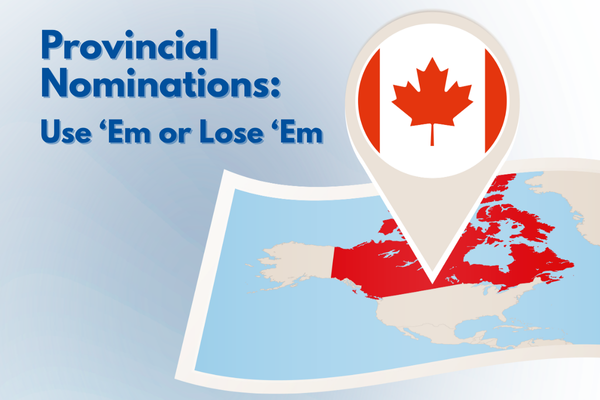This is a subtitle for your new post
Have an upcoming interview with a Canadian employer? Read on to find out how you can be their best candidate.
Before the Interview
Preparing for your interview is one of the most important steps in the hiring process. A well-prepared candidate shows the employer that they are organized and enthusiastic, and will bring those skills to the workplace. The following tips will help you impress your potential employer!
Get set up for the call in advance.
For video or phone interviews, be sure all of your technology is working. Prepare the following at least a day ahead of time:
- Test your internet connection, microphone, camera, and speakers. Conduct a test call with a friend or family member to make sure everything is working.
- Find a quiet area where you will not be interrupted by outside noise. For video calls, find a place with bright lighting and a simple background, such as a wall near a window in your home.
- If the employer is calling you on the phone, be sure to provide them with your full phone number in advance, including your country code.
- Be sure to check your email in the days leading up to your interview. Employers may reach out with questions, scheduling details, or video call links. Make sure you don’t miss any information that can help you to be prepared.
Know why this is the right job for you.
Be prepared to answer the question, “Why do you want to work for our company?” Employers love to see candidates who are excited to learn and advance their career in Canada.
Hiring foreign workers is a big investment for employers. They want to feel confident that the candidate plans to work for them for a long time. Showing that you have researched the company and want to work there specifically will excite the employer. If you plan to seek permanent residency in Canada, be sure to let the employer know.
Canada is a big country, and not all jobs are in large cities. You should know whether the location is urban or rural, what the weather is like, and whether French or English is the main language spoken. This will help you decide if the opportunity is right for you and give your employer confidence that you are ready to stay for a while. Show the employer that you have researched these aspects of the job as well.
Be ready to discuss examples of your successes in the workplace.
Canadian employers often ask candidates to talk about specific examples that prove you can succeed in the job. This is called behavioural interviewing, and it is becoming more and more common.
For each responsibility listed in the job description, think of a time when you used the required skills or a time you completed similar tasks.
When an interviewer asks you to tell them about a time you solved a problem, communicated with coworkers, or used any other skills required for the job, give your answer in the following format:
- Summarize the challenge you faced and how it needed to be solved.
- Tell them about the actions you took to solve the problem.
- Finish your answer by telling them the result of your solution.
During the Interview
If you have prepared for your interview in advance, you are all set up to impress your interviewer. Follow the guidelines below to connect with the employer and communicate the answers you have prepared clearly.
Arrive on time.
Join the video five minutes in advance. Arriving after the agreed upon starting time is considered very unprofessional by Canadian employers, and most expect candidates to be five to ten minutes early.
Take your time.
Don’t be afraid to pause before answering a question. Taking a moment to think of the best answer shows the employer that you are thoughtful and a good communicator.
Avoid speaking too quickly, as it can make it difficult to understand your answers. If you are having trouble understanding the interviewer, you can always ask them to repeat themselves.
Ask questions.
At the end of the interview, most employers will ask if you have any questions. Having no questions to ask can make the interviewer think that you are not interested in the job. It is best to think of one or two thoughtful and specific questions as you prepare for the interview. This can also help you gain more information to decide whether you would like to accept the job if it is offered to you.
Be mindful of cultural differences.
International candidates may be surprised to find Canadian employers more casual than employers in their home country. Canadian employers highly value friendliness and enthusiasm as well as professionalism. Applicants can give a good impression by smiling often, making eye contact with the speaker, and showing the employer that they are excited to be interviewing. If an employer introduces themselves by their first name, you can call them by their first name.
After the Interview
The hardest part is over! After the interview, leave your interviewer with a professional impression.
Thank the employer for the opportunity as you finish the interview. If you like, you can also reach out with a short email afterwards, thanking them for their time and mentioning an aspect of the job that excites you.
Follow Up
If you haven’t heard back from the employer after a week or two, you can send them an email asking whether the role has been filled. Even if you are not selected, always be polite - another opportunity with the employer might come up!
Ready to apply for more Canadian jobs?
Check out our job board and apply to our many opportunities today!

